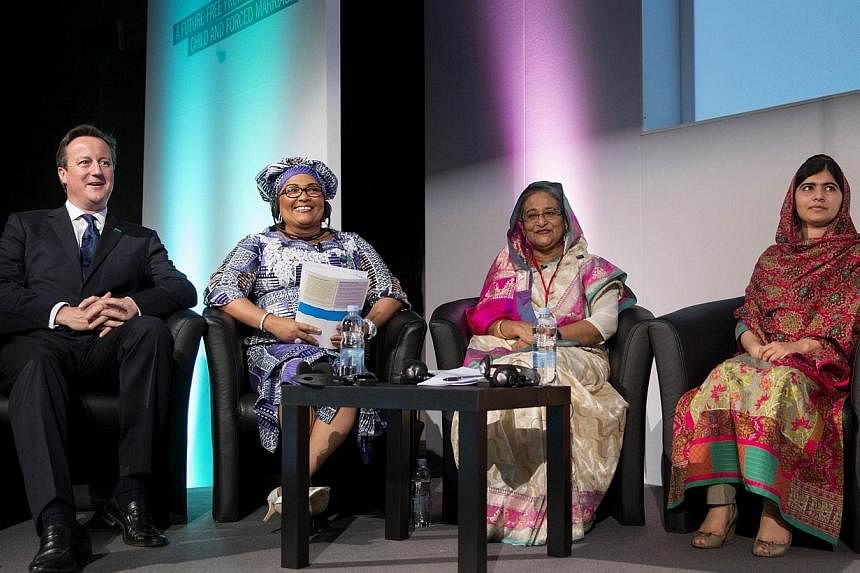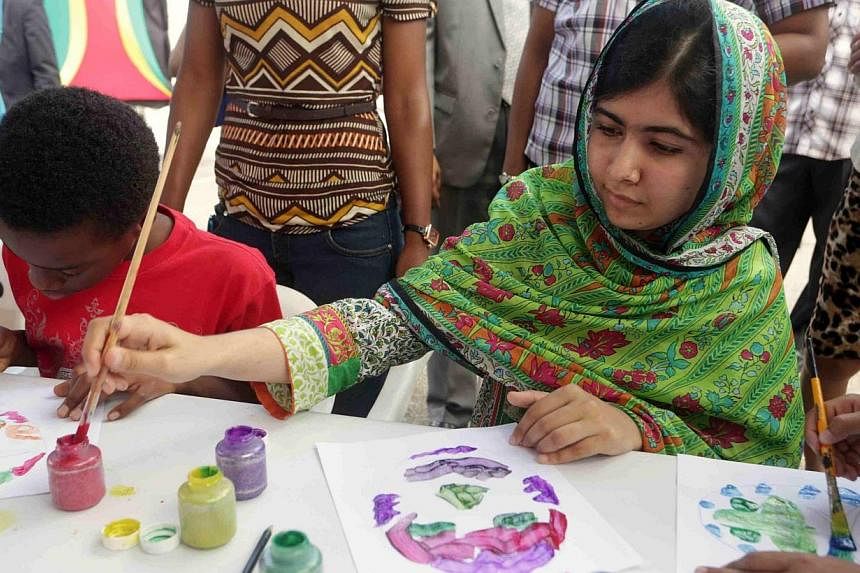ISLAMABAD (REUTERS) - Malala Yousafzai, who won the Nobel Peace Prize on Friday, is hailed around the world as a champion of women's rights who stood up bravely against the Taleban to defend her beliefs.
But in her deeply conservative homeland, many view her with suspicion as an outcast or even as a Western creation aimed at damaging Pakistan's image abroad.
Malala, now aged 17, became globally known in 2012 when Taleban gunmen almost killed her for her passionate advocacy of women's right to education.
She has since become a symbol of defiance in the fight against militants operating in Pashtun tribal areas in northwest Pakistan - a region where women are expected to keep their opinions to themselves and stay at home. "The terrorists thought that they would change our aims and stop our ambitions but nothing changed in my life except this: Weakness, fear and hopelessness died. Strength, power and courage was born," she told the United Nations last year. "I do not even hate the Talib who shot me. Even if there is a gun in my hand and he stands in front of me. I would not shoot him," she said in a speech which captivated the world.
Malala has also won the European Union's human rights award and was one of the favourites to win the Nobel Prize last year.
Now based in Britain, she is unable to return to her homeland because of Taleban threats to kill her and her family members. The current Taleban chief, Mullah Fazlullah, was the one who ordered the 2012 attack against her.
Yousafzai has enrolled in a school in Birmingham and become a global campaigner for women's right to education and other human rights issues, taking up issues such as the situation in Syria and Nigieria.
In her native Swat valley, however, many people view Malala - backed by a supportive family and a doting father who inspired her to keep up with her campaign - with a mixture of suspicion, fear and jealousy.
At the time of her Nobel nomination last year, social media sites were brimming with insulting messages. "We hate Malala Yousafzai, a CIA agent," said one Facebook page.
She was a young student in the Swati town of Mingora in Pakistan's northwestern Khyber Pakhtunkhwa province when she became interested in women's rights.
At the time, the Taleban were in power in the strategic valley after they took control over the region and imposed strict Islamic rules, including their opposition to women's education.
She wrote an anonymous blog describing her life under the Taleban-controlled region. In Oct 2012, after the Taleban were pushed out of Swat by the Pakistani army, she was shot in the head on her way to school by a Taleban gunman.
She survived after being airlifted to Britain for treatment and recovered from her life-threatening wounds. "The wise saying, 'The pen is mightier than sword', was true. The extremists are afraid of books and pens," she told the United Nations. "The power of education frightens them. They are afraid of women. The power of the voice of women frightens them."







